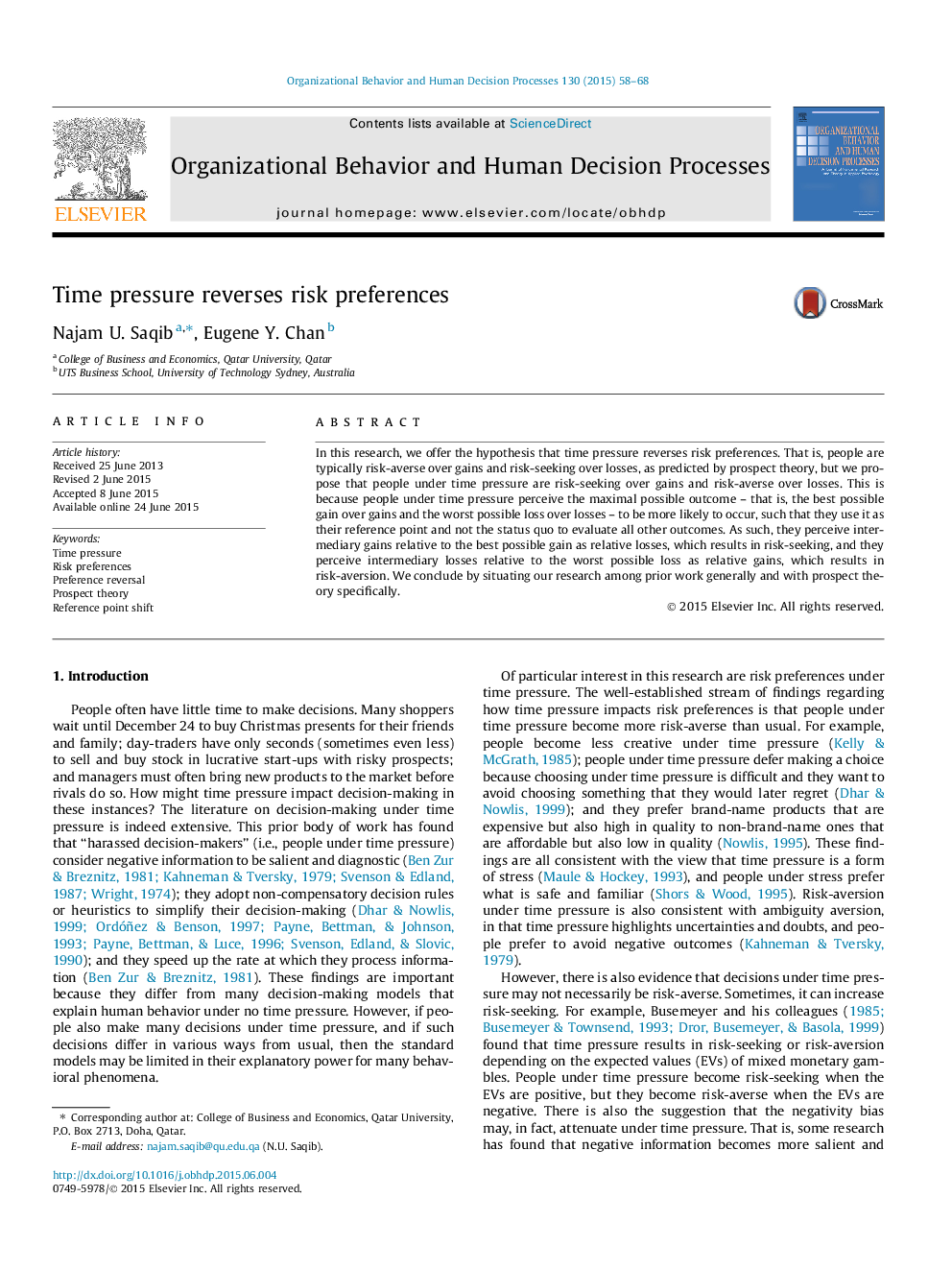| Article ID | Journal | Published Year | Pages | File Type |
|---|---|---|---|---|
| 888496 | Organizational Behavior and Human Decision Processes | 2015 | 11 Pages |
•People are typically risk-averse over gains and risk-seeking over losses.•However, people under time pressure are risk-seeking (averse) over gains (losses).•People under time pressure use the maximal possible outcome as their reference point.•This reference point is the best (worst) possible gain (loss) over gains (losses).•An abstract construal attenuates this risk preference reversal.
In this research, we offer the hypothesis that time pressure reverses risk preferences. That is, people are typically risk-averse over gains and risk-seeking over losses, as predicted by prospect theory, but we propose that people under time pressure are risk-seeking over gains and risk-averse over losses. This is because people under time pressure perceive the maximal possible outcome – that is, the best possible gain over gains and the worst possible loss over losses – to be more likely to occur, such that they use it as their reference point and not the status quo to evaluate all other outcomes. As such, they perceive intermediary gains relative to the best possible gain as relative losses, which results in risk-seeking, and they perceive intermediary losses relative to the worst possible loss as relative gains, which results in risk-aversion. We conclude by situating our research among prior work generally and with prospect theory specifically.
